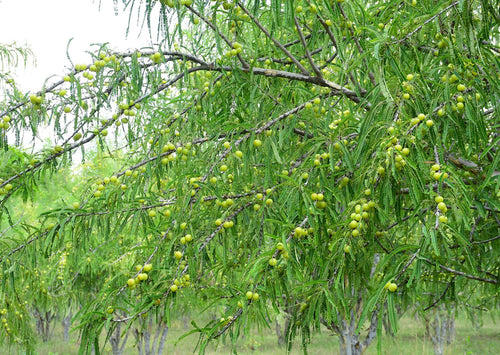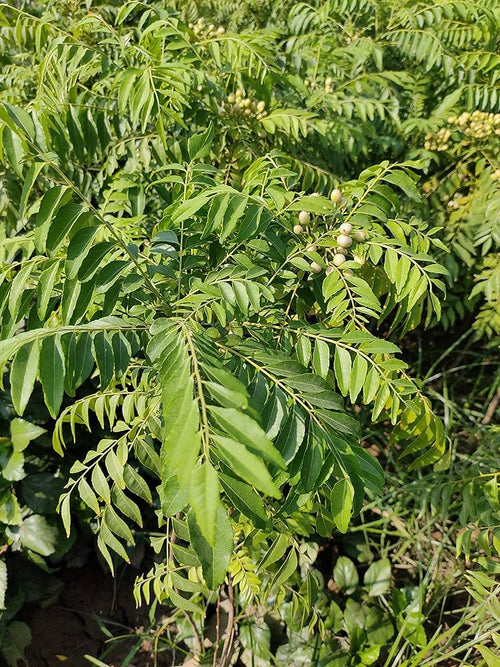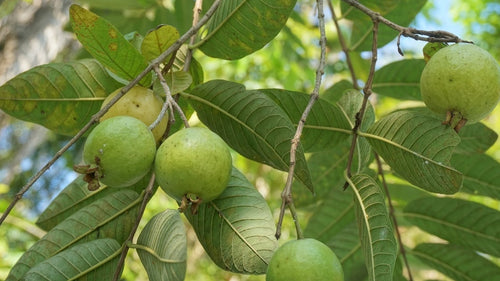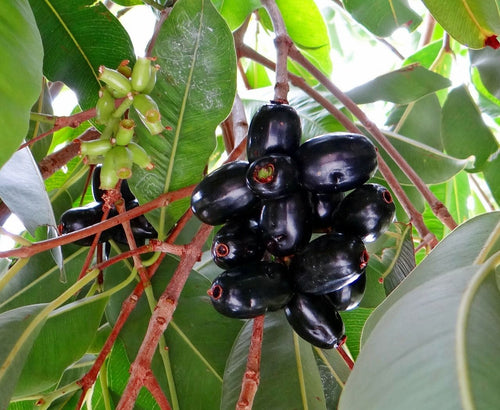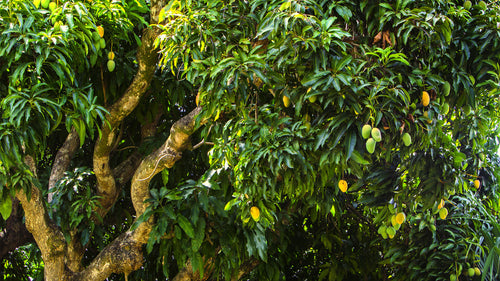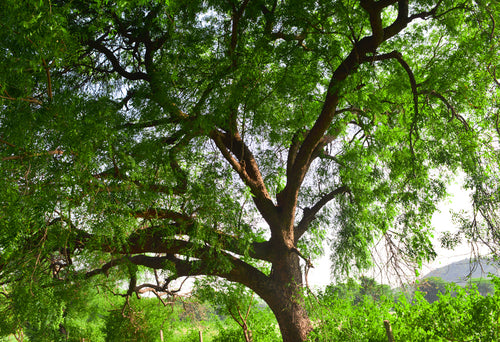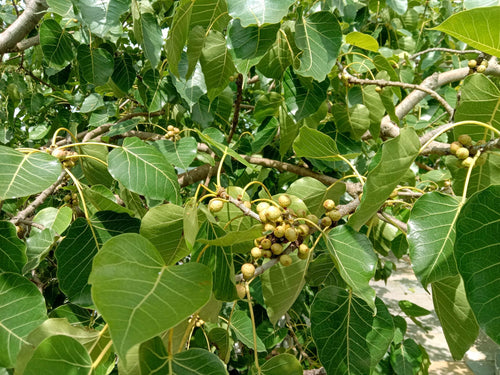Eco-Leadership: JK Organisation's Agroforest Vision
As part of its unwavering commitment to sustainability and social responsibility, JK Organisation recently embarked on a unique agroforest tree planta Read more
Project Update 2
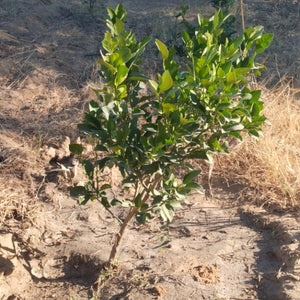
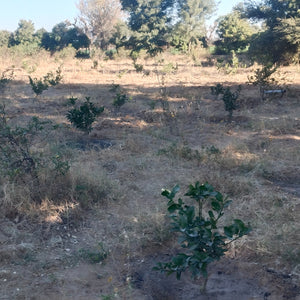
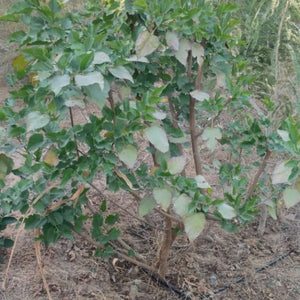
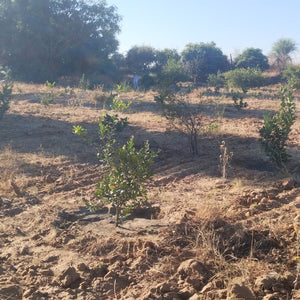
Project Update 1
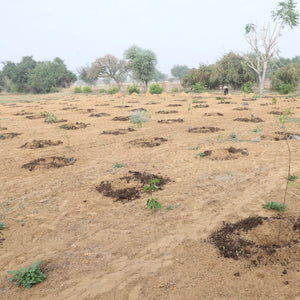
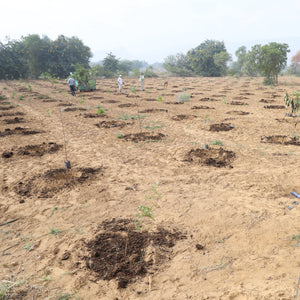
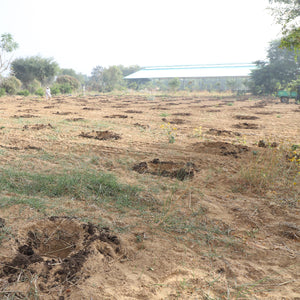
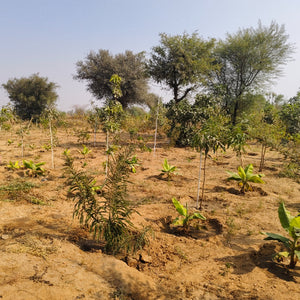

Digital Forest
Forest with 1,430 Trees planned
Want to plant your tree now?
Plant a Tree @ 299Eco-Leadership: JK Organisation's Agroforest Vision
As part of its unwavering commitment to sustainability and social responsibility, JK Organisation recently embarked on a unique agroforest tree plantation initiative during its marketing conference. This thoughtful gesture symbolizes the company’s dedication to nurturing the environment while fostering community well-being.
For every attendee at the conference, JK Organisation planted a tree in an agroforest, transforming the event into a meaningful act of environmental stewardship. Agroforests not only support biodiversity but also create sustainable ecosystems that benefit farmers and rural communities, aligning perfectly with JK Organisation's values of innovation and inclusivity.
By integrating sustainability into its corporate practices, JK Organisation continues to lead by example, showcasing how businesses can contribute to a greener, healthier planet while strengthening community ties. This initiative underscores the conglomerate's century-long legacy of balancing business growth with environmental responsibility.
Project Planning & Execution
No of Trees: 1430
Plantation Location: Bhairana, Jaipur, Rajasthan 303338
Plantation Duration: 12th February 2024 to 16th February 2024
Name of Species: Peepal, Neem, Drumstick, Gulmohar, Philkan, Jamun, Amla, Imli, Belpatra, Guava, Mango, Karanj
Species Selection & Its Benefits:
The tree species selected for J.K. Organisation’s plantation initiative reflect a strategic blend of ecological relevance, economic utility, and cultural importance. A total of 12 species were thoughtfully chosen for this initiative: Peepal, Neem, Drumstick, Gulmohar, Pilkhan, Jamun, Amla, Imli (Tamarind), Belpatra, Guava, Mango, and Karanj.
Fruit-bearing trees such as Jamun, Guava, Mango, Amla, and Imli (Tamarind) were chosen for their ability to provide seasonal produce, thereby supporting local farmers’ livelihoods and enhancing food and nutritional security. Culturally and medicinally significant species like Neem, Belpatra, and Peepal have long been valued in traditional wellness systems and continue to play a vital role in rural healthcare and rituals.
The inclusion of Drumstick adds both nutritional and ecological value due to its rapid growth, drought tolerance, and multipurpose use. Native species such as Gulmohar, Philkan, and Karanj are well-suited to the local climate and contribute to soil fertility, water conservation, and biodiversity.
Collectively, this diverse mix of trees promotes environmental regeneration, sustainable agriculture, and long-term ecological balance, reaffirming the J.K. Organisation’s steadfast commitment to a greener and more resilient future.
Beneficiaries Details
| SN | Farmer Name | Google Location | Village Name | Plot Size(Acres) |
| 1 | Surendra Avana Ji | https://rb.gy/65qhid | Bhairana | 3.64 Acre |
Planting Methodology and Its Advantages
Agroforestry: J.K. Organisation’s tree plantation initiative is based on the agroforestry concept, a sustainable land management practice that promotes environmental conservation while supporting local sustainability efforts. This initiative contributes to long-term ecological balance while enhancing carbon sequestration and biodiversity. Agroforestry helps improve soil health, enhance water retention, and reduce soil erosion, ensuring sustainable land use. Additionally, it reduces dependence on chemical fertilisers, fosters natural pest control, and creates microclimatic benefits, such as temperature regulation, wind protection, and shade for companion crops.
J.K. Organisation recognises agroforestry as a strategic approach to environmental sustainability, ecological restoration, and carbon footprint reduction. This initiative reinforces the company’s commitment to responsible environmental practices, contributing to a greener planet and a more sustainable future.
Advantages of Agroforestry
-
Increased Farmer Incomes: This approach helps in increasing the farmer’s income by as much as 3 times. Farmers benefit from diversified income sources, lifting economic resilience.
-
Improved Livelihoods: Agroforestry enhances farmers' resilience to economic and climate-related shocks by creating more sustainable and diversified farming systems.
-
Biodiversity Promotion: Agroforestry supports a diverse range of plants and animals, creating habitats for wildlife and improving ecosystem health.
-
Environmental Sustainability: This model reduces carbon emissions and promotes sustainable land management, aligning with SDG 13 (Climate Action) and SDG 15 (Life on Land).
-
Food Security: Agroforestry enhances agricultural productivity and food availability by integrating fruit-bearing trees with crops, contributing to SDG 2 (Zero Hunger).
-
Carbon Sequestration: Trees planted through agroforestry absorb carbon dioxide, helping reduce greenhouse gas emissions.
-
Climate Resilience: Agroforestry helps mitigate climate change impacts by improving land productivity and fostering biodiversity.
- Improved Soil and Water Management: Trees enhance soil fertility, reduce erosion, and increase water retention, resulting in more resilient farming.
Conclusion Elements
Impact
Direct Impact
| Parameters | Values | References |
| No. of Trees Planted | 1,430 | |
| Green Cover (Acres) | 3.64 | |
| Carbon Sequestration Potential (KG) | 20 |
Small to medium-sized trees can sequester around 10–48 kilograms (22–106 pounds) of CO₂ annually. https://growbilliontrees.com/blogs/knowledge/how-much-co2-can-one-tree-absorb |
| Carbon Sequestration by 1430 mature trees ( Tons/year) | 28.6 Tons | No. of Trees x Carbon Sequestration by 1 mature trees per year |
| Carbon Credit Equivalent | 28.6 | One carbon credit is equivalent to one tonne of carbon dioxide or the equivalent amount of another greenhouse gas. |
| Carbon Footprint of an avg Indian Citizen (Tons/Year) | 1.8 | https://www.iea.org/countries/india/emissions |
| Offsets Annual Carbon Footprint of (Adults) | 16 | Carbon offset by 1430 mature trees per year / Carbon Footprint of an avg Indian Citizen per year |
*This impact analysis is forward-looking (An Agro-forestry project matures in 3-5 years)
Indirect Impact
Community Impact
-
Empowerment of Farmers: By providing training and resources for sustainable farming practices, agroforestry equips farmers with skills to enhance productivity and adapt to environmental changes.
-
Food Security: The integration of fruit-bearing trees and crops ensures a consistent food supply, improving nutrition and reducing hunger within the community.
-
Environmental Awareness: Community involvement in tree plantation fosters a sense of responsibility for environmental conservation and promotes sustainable practices in daily life.
-
Enhanced Social Equity: Agroforestry initiatives foster enhanced social equity by empowering marginalised farmers with sustainable livelihoods, bridging economic gaps, and promoting inclusive community participation in environmental conservation efforts.
-
Resilience to Climate Change: The diverse and sustainable nature of agroforestry helps communities mitigate the impacts of climate change, including extreme weather events, by stabilising local ecosystems.
-
Health and Well-being: Green spaces created through agroforestry improve air quality and offer a healthier environment, contributing to the physical and mental well-being of the community.
Environmental Impact
-
Carbon Sequestration: Trees act as carbon sinks, absorbing significant amounts of CO2 from the atmosphere, helping to mitigate climate change and reduce greenhouse gas emissions.
-
Soil Health Improvement: Agroforestry enriches soil through organic matter from fallen leaves and roots, improving fertility, structure, and nutrient availability for crops.
-
Erosion Prevention: Tree roots stabilise the soil, reducing erosion caused by wind and water while protecting nearby agricultural fields and water bodies.
-
Biodiversity Conservation: By creating habitats for various species, agroforestry enhances biodiversity, supporting pollinators, beneficial insects, and native wildlife.
-
Water Cycle Regulation: Trees improve water retention, recharge groundwater levels, and reduce surface runoff, contributing to a more balanced and sustainable water cycle.
- Microclimate Regulation: Agroforestry moderates temperature extremes, reduces wind speeds, and increases humidity, creating favourable conditions for crop growth and ecosystem balance.
Achievements
SDG Goals Achieved through Agroforestry
-
SDG 1: No Poverty – J.K. Organisation’s initiative supports marginalised farmers by integrating fruit-bearing trees into agricultural landscapes, creating long-term income opportunities and enhancing economic resilience.
-
SDG 2: Zero Hunger – Agroforestry improves soil fertility, enhances crop productivity, and promotes sustainable farming, ensuring better food security for rural communities.
-
SDG 3: Good Health and Well-Being – The planted trees contribute to air purification, reduced carbon emissions, and biodiversity enhancement, fostering a healthier environment for local communities.
-
SDG 4: Quality Education – J.K. Organisation’s commitment to sustainability includes empowering farmers with training and knowledge on sustainable land-use practices, conservation, and climate-resilient agriculture.
-
SDG 5: Gender Equality – By encouraging inclusive participation in agroforestry, this initiative supports women’s involvement in sustainable farming and economic empowerment.
-
SDG 6: Clean Water and Sanitation – The planted trees enhance soil moisture retention, reduce water runoff, and aid groundwater recharge, ensuring better water conservation.
-
SDG 8: Decent Work and Economic Growth – J.K. Organisation’s initiative creates jobs in tree planting, nursery management, and agro-processing, boosting local economies. Promoting sustainable agroforestry businesses fosters entrepreneurship and enhances financial resilience for farmers through diversified income sources.
-
SDG 9: Industry, Innovation, and Infrastructure – By supporting innovative agroforestry practices, J.K. Organisation promotes sustainable agricultural infrastructure and long-term environmental impact.
-
SDG 10: Reduced Inequality – The initiative empowers small-scale farmers with alternative income sources and sustainable farming training, helping bridge economic disparities.
-
SDG 12: Responsible Consumption and Production – J.K. Organisation’s commitment to sustainability ensures responsible resource use, promoting organic farming and reducing dependency on chemical inputs.
-
SDG 13: Climate Action – The planted trees act as carbon sinks, absorbing CO₂ emissions and helping mitigate climate change, aligning with J.K. Organisation’s environmental responsibility goals.
-
SDG 15: Life on Land – By supporting reforestation and biodiversity conservation, J.K. Organisation actively works towards restoring ecosystems and preventing land degradation.
-
SDG 17: Partnerships for the Goals – J.K. Organisation’s collaboration with Grow Billion Trees highlights the power of strategic partnerships in driving sustainability, combining expertise, resources, and community engagement for a greener future.
ESG Achieved through Agroforestry:
-
Environmental Impact: J.K. Organisation’s tree plantation initiative integrates sustainable afforestation with ecological restoration, contributing to carbon sequestration, climate change mitigation, and improved air quality. By enhancing soil fertility, preventing erosion, and promoting groundwater recharge, the initiative ensures long-term ecological stability. The plantation also fosters biodiversity by providing habitats for wildlife and strengthening ecosystem resilience, reinforcing the company’s commitment to environmental conservation and responsible land stewardship.
-
Social Impact: J.K. Organisation has embarked on a unique tree plantation initiative as part of its sustainability-driven gifting program, planting trees to commemorate its valued customers. This initiative not only strengthens business relationships but also creates a lasting environmental impact by promoting sustainability through meaningful contributions to nature. By engaging farmers in plantation activities, the initiative provides income opportunities, supports food security, and enhances rural livelihoods through the long-term benefits of native fruit-bearing tree cultivation. Additionally, the project fosters women’s employment by involving them in various stages of plantation and maintenance, empowering them with sustainable livelihood opportunities. The initiative also promotes environmental awareness and social responsibility among customers and local communities, aligning business success with sustainable development.
- Governance Impact: J.K. Organisation’s collaboration with Grow Billion Trees highlights its dedication to ethical governance, transparency, and measurable environmental impact. This initiative follows expert-led afforestation strategies, structured execution, and adherence to sustainability standards. By ensuring accountability, responsible corporate governance, and stakeholder trust, J.K. Organisation sets a benchmark for sustainable business practices, reinforcing its commitment to corporate responsibility and environmental stewardship.
Building Communities
One of the most impactful outcomes of J.K. Organisation’s agroforestry initiative was the sense of connection and shared purpose it fostered among customers, farmers, and environmental partners. By integrating tree plantation into its corporate gifting program, the initiative became more than just an act of sustainability; it evolved into a symbol of gratitude, responsibility, and long-term commitment to a greener future.
-
Empowering Farmers: Farmers were not just involved in the plantation process; they played an essential role in ensuring the trees thrive, benefiting from sustainable agroforestry practices that provide long-term economic and ecological advantages. This initiative empowered them with knowledge, resources, and an additional source of income, reinforcing their connection to environmental conservation and sustainable agriculture.
-
Fostering Partnerships: The initiative brought together J.K. Organisation’s Grow Billion Trees and local farming communities, highlighting the power of collaboration in creating lasting environmental change. Through this partnership, the plantation was executed with expertise, precision, and a focus on long-term sustainability, ensuring that the trees not only grow but also contribute to biodiversity, carbon sequestration, and improved soil health.
-
Creating a Ripple Effect: By planting trees for attendees at its marketing conference, J.K. Organisation inspired a deeper appreciation for sustainability, encouraging businesses and individuals to support green initiatives. The initiative set an example, motivating more companies to explore sustainable corporate gifting while demonstrating that environmental responsibility and business success can go hand in hand.
This initiative reinforced that true sustainability is built through collective action. It was not just about planting trees, it was about planting trust, fostering collaboration, and cultivating a shared vision for a greener, more resilient future.
GBT Commitments
-
Sustainable Plantation Efforts: GBT implements projects that balance environmental, social, and economic goals, addressing issues like urban heat islands and degraded farmlands. These efforts promote ecological balance, livelihoods, and long-term climate resilience.
-
Enhancing Ecosystem Health: By selecting native species and creating diverse habitats, GBT enhances biodiversity and ecosystem resilience, ensuring long-term ecological health and supporting wildlife.
-
Ensuring Tree Survivability: GBT prioritizes native species, continuous monitoring, and soil health improvement using organic fertilizers. These efforts ensure sustainable growth and benefit the farmers and communities.
-
Transparency & Accountability: GBT provides detailed reports on tree growth, survival rates, and carbon benefits, using geo-fencing and regular updates to maintain transparency and effectiveness.
-
Long-Term Impact: GBT’s initiatives tackle environmental challenges, enhance rural livelihoods, foster climate resilience, and promote sustainable development while reducing carbon footprints.
Acknowledgement
We at Grow Billion Trees extend our sincere gratitude to everyone who played a role in the success of the agroforestry plantation project in Bhairana, Rajasthan. This initiative, which harmonises environmental conservation with community empowerment, would not have been possible without the collective dedication of visionary organisations and passionate individuals.
To J.K. Organisation: We extend our sincere gratitude to J.K. Organisation for their remarkable commitment to environmental sustainability and rural development. As part of their green initiative, J.K. Organisation supported a tree plantation drive in Bhairana, Rajasthan, under the Grow Billion Trees Agroforestry Project.
Through this initiative, J.K. Organisation has taken a significant step towards restoring the region’s ecological balance while uplifting the lives of local farmers. By promoting the agroforestry model, which integrates native and fruit-bearing tree species on farmland, the project not only enhances biodiversity but also creates long-term income opportunities for rural communities.
We applaud the thoughtful execution of J.K. Organisation’s initiative, which brought meaningful impact to the ground. This effort reflects the company’s strong culture of environmental consciousness and collective responsibility, adding depth and purpose to its sustainability journey.
A gesture of lasting impact, each tree planted reflects J.K. Organisation’s dedication to corporate responsibility, environmental stewardship, and social good. Their leadership in aligning business values with sustainability goals serves as an inspiration for others to follow.
To the Farmer of Bhairana, Rajasthan: Your trust and commitment to adopting agroforestry practices have been inspiring. By integrating native trees into your farming systems, you have not only enhanced the land's fertility but also contributed to sustainable agricultural practices. Your efforts to improve the ecosystem and the livelihoods of future generations are commendable. We are honoured to be part of this transformation and are excited to see the positive impact you continue to make.
To Our Ground Partners and Volunteers: Your expertise, passion, and tireless efforts have ensured the successful execution of this project. Through our collective dedication to sustainability, we have demonstrated that strategic partnerships and shared environmental responsibility can lead to tangible, long-term benefits for people and the planet.
Through this collaborative effort, we have taken meaningful steps toward restoring ecosystems, strengthening rural economies, and promoting responsible environmental stewardship. This marks the beginning of an enduring commitment to a greener, more sustainable future, and we look forward to continuing this journey together.
Thank you for your unwavering support and dedication to sustainability.
Closing Remarks
In conclusion, the collaborative efforts of J.K. Organisation and Grow Billion Trees have laid a strong foundation for meaningful and sustainable change. By integrating environmental restoration with the empowerment of local farming communities, this initiative not only nurtures ecological health but also enhances income and livelihood opportunities for farmers in Bhairana, Rajasthan.
This project is a shining example of how business objectives can be harmoniously aligned with social responsibility. Through the agroforestry model, J.K. Organisation has enabled long-term economic benefits for farmers while contributing to increased green cover, improved soil health, and climate resilience. This initiative reflects a purposeful approach to sustainability, transforming corporate action into lasting environmental and community impact.
As we move forward, we remain committed to creating more such opportunities that promote sustainable livelihoods, strengthen rural communities, and contribute to a greener, more resilient planet. We are inspired by J.K. Organisation’s leadership and look forward to continuing this journey, growing forests, empowering people, and shaping a more sustainable future together.
Together, we grow a greener tomorrow!
Trees for Corporates
Trending
Most Popular
1. JK Organisation Sustainability Initiatives
farmers as eco-warriors, saplings standing tall as future carbon sinks, and the agroforests whispering promises of biodiversity. With this initiative, JK Organisation proved that business and sustainability can indeed hold hands, skip along, and plant a better tomorrow.
2. Agroforestry Benefits by JK Organisation
Agroforestry might sound like a tongue twister, but it’s really just a win-win green deal. JK Organisation nailed it with their tree plantation drive, showing off the magic of combining trees with agriculture. Think of it as nature’s multitasking hack—protecting soil, reducing carbon, and keeping farmers smiling with extra income. Their initiative doesn’t just tick the environmental box; it screams “We’re growing profits and produce!” A witty move, JK Organisation, turning sustainability into a thriving ecosystem of goodness.
3. Tree Plantation Drives by Corporates
Corporate tree plantation drives can sometimes be all bark and no bite. Not with JK Organisation. They rolled up their sleeves (and probably their trousers) to make their agroforest tree plantation drive a model of impact. By planting for each conference attendee, they transformed a marketing event into a green milestone. Imagine a corporate conference where the keynote is delivered by Mother Nature herself. JK Organisation’s strategy? Let’s grow more than business—let’s grow forests.
4. Empowering Farmers through Agroforests
where JK Organisation sows sustainability and reaps smiles.
5. Climate Action Through Tree Planting
proving that even marketing conferences can be climate-friendly.
6. Corporate Social Responsibility and Agroforests
Caring Seriously for Roots.
7. Environmental Benefits of Agroforests
versatile, effective, and totally green. Hats off to JK Organisation for rooting for the environment—literally and figuratively.
8. Green Innovations by JK Organisation
Green is the new black, and JK Organisation is rocking it. Their agroforest tree plantation initiative is a fresh take on corporate innovation. Instead of brainstorming for profit margins, they brainstormed for plant margins. Every tree they planted was a nod to the planet, proof that businesses can think beyond spreadsheets. JK Organisation’s green innovation? Turning marketing conferences into mini climate solutions. Bravo!
FAQ
What is the aim of JK Organisation’s tree plantation initiative in the agroforest concept?
At JK Organisation, our tree plantation initiative in the agroforest concept aims to promote environmental sustainability while supporting rural livelihoods. By planting trees alongside agricultural crops, we contribute to biodiversity, improve soil quality, and help farmers diversify their income. This initiative is designed to mitigate climate change, enhance ecosystems, and create a greener, more sustainable future. We believe in combining business with environmental responsibility, making a tangible difference for the environment and local communities.
How does agroforestry benefit farmers in India?
Agroforestry offers several advantages to farmers in India, including increased income opportunities, improved soil fertility, and reduced environmental risks. By integrating trees with crops, farmers can generate additional revenue from timber, fruits, or medicinal plants while enhancing soil health and preventing erosion. Agroforestry practices also provide shade and shelter for crops, which helps in conserving water and improving yield quality. JK Organisation’s support for agroforestry empowers farmers with sustainable agricultural practices, fostering long-term economic stability and environmental resilience.
What types of trees are planted under the agroforest initiative by JK Organisation?
In the agroforest initiative, JK Organisation focuses on planting a mix of native and agro-friendly tree species. These trees are selected for their compatibility with local climates and ability to benefit the surrounding agricultural crops. The species include nitrogen-fixing trees, fruit-bearing trees, and timber-producing trees, which enhance soil health, provide shade, and support biodiversity. Our aim is to ensure that the trees planted create a sustainable balance between agriculture and the environment, offering both ecological and economic advantages for farmers.
How does JK Organisation ensure the success of its tree plantation initiative?
To ensure the success of our tree plantation initiative, JK Organisation works closely with local farmers and experts in agroforestry. We provide necessary training and resources for proper tree planting, maintenance, and care. The trees selected are well-suited to the local environment, ensuring high survival rates and growth. Regular monitoring, along with community engagement, helps us address any challenges and improve the project’s outcomes. Our commitment to sustainability and long-term impact ensures that this initiative thrives and contributes positively to the environment and local communities.
What role do farmers play in the agroforestry initiative by JK Organisation?
Farmers play a crucial role in the agroforestry initiative by actively participating in the plantation and maintenance of trees. They prepare the land, plant the saplings, and care for them, ensuring the trees’ survival and growth. Through this initiative, JK Organisation empowers farmers with the knowledge and resources to implement agroforestry practices successfully. The partnership creates a win-win situation where farmers benefit from increased income opportunities while contributing to environmental sustainability. Their active involvement is key to the long-term success of the agroforest initiative.
How does agroforestry help in reducing the effects of climate change?
Agroforestry plays a significant role in mitigating climate change by acting as a carbon sink. Trees absorb carbon dioxide from the atmosphere and store it in their biomass and soil, which helps reduce greenhouse gas emissions. Additionally, agroforestry systems improve soil quality, reduce erosion, and enhance water retention, making them more resilient to climate impacts like droughts and floods. By promoting agroforestry, JK Organisation is not only helping to combat climate change but also creating a more sustainable and resilient agricultural ecosystem.
What are the environmental impacts of the agroforestry initiative by JK Organisation?
The environmental impacts of JK Organisation’s agroforestry initiative are significant. By planting trees alongside crops, we improve soil health, enhance biodiversity, and reduce water runoff. The trees help in carbon sequestration, mitigating the effects of climate change. Agroforestry also contributes to water conservation and prevents soil erosion, which is crucial for maintaining healthy farmlands. Overall, the initiative fosters a balanced ecosystem where agriculture and nature coexist, resulting in long-term environmental benefits for both the land and the community.
How can agroforestry contribute to India’s rural development?
Agroforestry is a key contributor to rural development in India by improving farmers' livelihoods and promoting sustainable agricultural practices. The integration of trees in farming systems offers farmers diversified income streams from timber, fruits, or medicinal plants while enhancing soil fertility and crop yield. Agroforestry also helps conserve natural resources, providing long-term solutions to water scarcity and land degradation. JK Organisation’s focus on agroforestry in rural areas is a step towards strengthening the local economy, empowering farmers, and fostering environmental sustainability.
Why is JK Organisation focusing on agroforestry for its CSR initiatives?
Agroforestry aligns perfectly with JK Organisation’s commitment to sustainable business practices and social responsibility. Through our CSR initiatives, we aim to create positive environmental and social impacts by promoting eco-friendly agricultural practices. Agroforestry not only benefits the environment by improving biodiversity and reducing carbon emissions, but it also supports farmers in generating additional income. This holistic approach helps us address the United Nations Sustainable Development Goals, particularly those related to environmental sustainability, poverty alleviation, and climate action.
What are the benefits of agroforestry for India’s agricultural sector?
Agroforestry offers multiple benefits to India’s agricultural sector. By integrating trees with crops, farmers can boost soil fertility, reduce dependency on chemical fertilizers, and improve water retention in the soil. The trees provide shade, reduce wind damage, and act as windbreaks, leading to better crop yields. Additionally, agroforestry systems support the diversification of income, as farmers can earn from both crops and trees. JK Organisation’s agroforestry initiative helps strengthen the agricultural sector by promoting sustainable, long-term farming practices that are economically viable and environmentally friendly.
- Choosing a selection results in a full page refresh.
- Opens in a new window.


